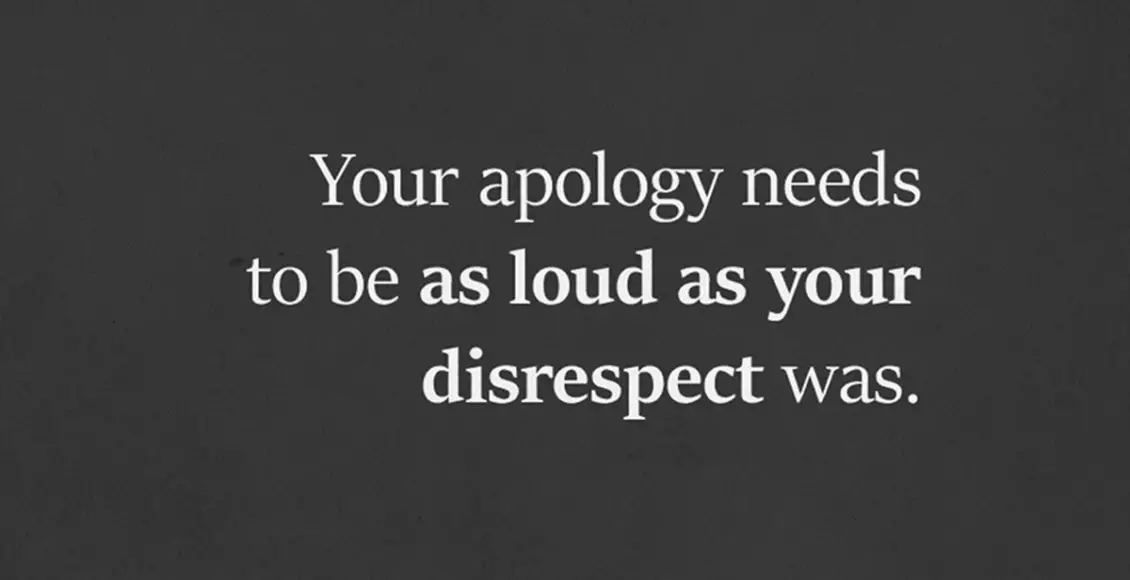How To Apologize When You’ve Hurt Someone
“I’m sorry” are two of the most powerful words in our shared human languages. We’re taught from the time that we’re children that when you do something wrong to someone else, you have to apologize. In preschool, if you hurt someone, you apologize for it. But all that really does is reinforce the surface level of what you have to do in order to obtain forgiveness is say you’re sorry. There is a lot internally that must happen if you want to apologize, and you have to express more than your apologies.
If you want to apologize, your apology should be as loud as your disrespect was.
This is how you loudly apologize to someone.
1. Take stock of why you’re sorry.
Before a single word leaves your mouth, you need to take stock of why you’re sorry. You need to understand what it is that you did and empathize a little bit with the person you did it to. Understanding why you’re sorry is step one. Without this part of the apology figured out, you can’t truly apologize.
2. Say you’re sorry.
Like I said already, these two words, “I’m sorry,” are two of the most powerful words you can utter. Expressing that you are sorry is among the most important things you can do when you’ve wrong someone. It is an admission that you understand you made a mistake. But to be fair, these are only words you should say if you’re actually sorry. To apologize for something about which you’re not sorry cheapens the words and your character.
3. Express that you understand why you are sorry.
It is important to say that you are sorry but it is not all you have to say. In order to apologize as loudly as your disrespect was, you need to articulate that you understand why you are sorry. Break it down. Talk about your actions and how it clearly impacted them. Affirming that you understand how you made the other party feel is absolutely crucial for legitimizing your apology.
4. Talk about what you’ve learned.
When we make mistakes and are making a good faith effort to correct those mistakes, there should be something you can learn. Mistakes, especially ones that hurt other people, provide us with important, teachable moments. When you apologize, it’s not just to cover your ass but to rebuild trust. Can the other person really trust you if they don’t know that you learned something? Talk about what it is that you learned from the mistake you made.
5. Acknowledge that you understand consequences.
Another part of your apology should be an outward acknowledgement that you understand that there will be consequences, possibly harsher consequences, if you make the same mistake again. The other party can’t fully trust you again if you don’t understand that making that mistake again will have consequences. These consequences are a deterrent from acting the way you did again. Make sure they know that you know.
6. List the ways you’ll change.
This part can be simple and brief. Talking about the steps you’ll take to avoid the mistake again in the future lets the other party know that you are fully committed to righting your wrongs and working hard to be better in the future.
7. Ask for forgiveness.
The final step in the process of loudly apologizing is to specifically ask the other party to forgive you. If they don’t, repeat any of the above steps until you know what needs to happen to earn that forgiveness.
Apologizing isn’t always easy, but if your relationship to the offended party matters, you’ll apologize fully, and loudly – loud enough to match your disrespect.



